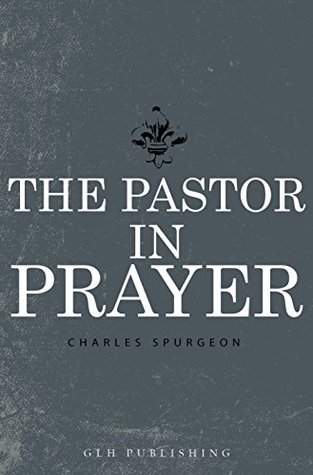The Pastor In Prayer
by C.H. Spurgeon
When the American evangelist D.L. Moody spoke in the Metropolitan Tabernacle in October 1892, he recalled an earlier visit twenty-five years previously. He had come four thousand miles, he said, to hear C.H. Spurgeon, but what impressed him most was not the sermon, nor the singing of the great congregation, but Spurgeon's prayer. Such was his access to God that he seemed to be able to bring down power from heaven. This was the great secret, Moody believed, of Spurgeon's influence and success. This collection of prayers drawn primarily from Sunday morning services at the Tabernacle will make a similar impression on readers today. In this book we see Spurgeon come into the presence of God with deep reverence, yet with unquestioning child-like confidence, to plead God's promises in Scripture and to revel in the nearness to God into which Christ has brought all who believe. The Pastor in Prayer will inspire those who lead public worship and all Christians with a fresh sense of the privilege of prayer, and a renewed desire to 'come boldly to the throne of grace'., there to 'obtain mercy and find grace to help in time of need'.
BUY NOW
Kindle Edition, 120 pages
Published October 31st 2014 by GLH Publishing (first published February 1st 1997)
© 2025 Bibleportal.com 版权所有.

C.H. Spurgeon (1834 - 1892)
Spurgeon quickly became known as one of the most influential preachers of his time. Well known for his biblical powerful expositions of scripture and oratory ability. In modern evangelical circles he is stated to be the "Prince of Preachers." He pastored the Metropolitan Tabernacle in downtown London, England.His church was part of a particular baptist church movement and they defended and preached Christ and Him crucified and the purity of the Gospel message. Spurgeon never gave altar calls but always extended the invitation to come to Christ. He was a faithful minister in his time that glorified God and brought many to the living Christ.
Charles Haddon Spurgeon was England's best-known preacher for most of the second half of the nineteenth century. In 1854, just four years after his conversion, Spurgeon, then only 20, became pastor of London's famed New Park Street Church (formerly pastored by the famous Baptist theologian John Gill).
The congregation quickly outgrew their building, moved to Exeter Hall, then to Surrey Music Hall. In these venues Spurgeon frequently preached to audiences numbering more than 10,000 - all in the days before electronic amplification.
In 1861 the congregation moved permanently to the new Metropolitan Tabernacle.
... Show more